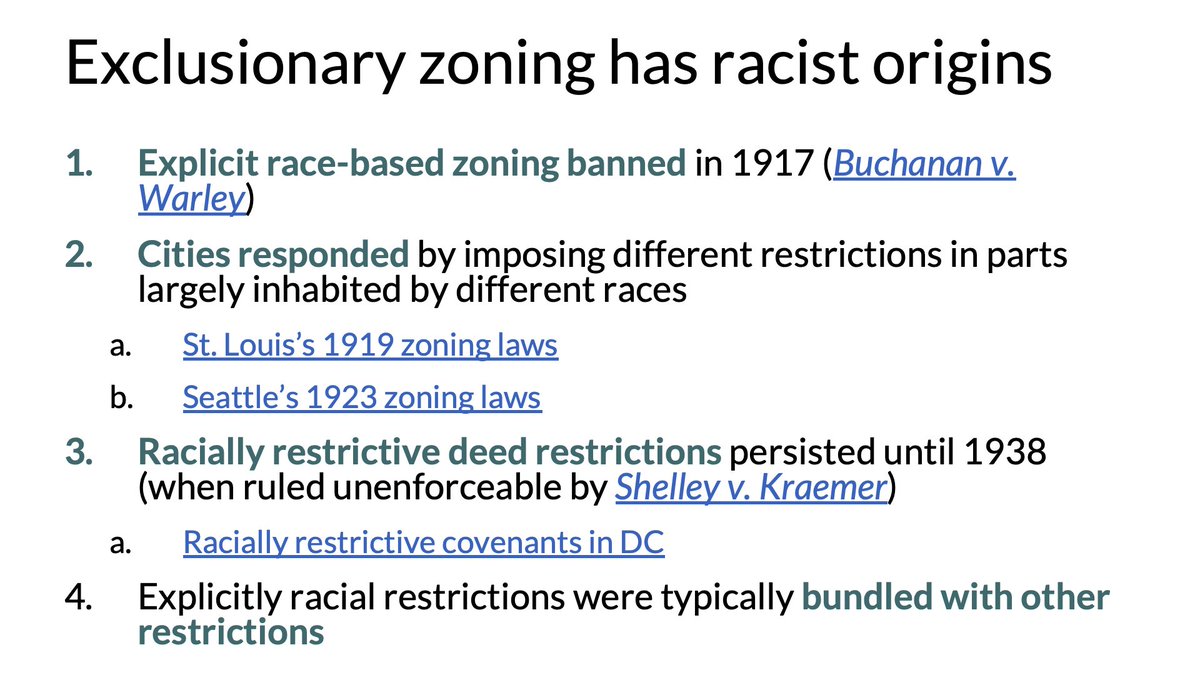
Economist, @UNCG PhD, "serial millennial myth debunker," labor, housing and time use researcher, @AU_SPA adjunct prof. Views are my own and not any employer's.
How to get URL link on X (Twitter) App


https://twitter.com/haroldpollack/status/1563504359542992899Those whose concern about the change to IBR is that it will be a government subsidy to universities should be ardently opposed to 529/ESAs, which provide significant government subsidies for university education for high-income families.
https://twitter.com/kearney_melissa/status/1563524136076382213?t=pm1VrZy8oOiz--s4cxduNA&s=19

https://twitter.com/graykimbrough/status/1499436944622690328
 The response asserts that many of these County committees are not required by the Open Meetings Act to post agendas and minutes online. For some BCCs, it notes that these materials were available in locations that I simply did not find using the County's websites and google.
The response asserts that many of these County committees are not required by the Open Meetings Act to post agendas and minutes online. For some BCCs, it notes that these materials were available in locations that I simply did not find using the County's websites and google.


 In 1926, the Supreme Court in Corrigan v. Buckley ruled that restrictions forbidding property sales to Black people were legal.
In 1926, the Supreme Court in Corrigan v. Buckley ruled that restrictions forbidding property sales to Black people were legal. 


https://twitter.com/jenniferdoleac/status/1455895783694381056And I'm looking forward to reading Jaehee Song's other work, including "Exclusionary Zoning Practices in Response to Transportation Developments"



 Exclusively representing white homeowners in the 1940s, the Montgomery County Civic Federation staunchly opposed anything but detached single-family homes in what it considered single-family neighborhoods.
Exclusively representing white homeowners in the 1940s, the Montgomery County Civic Federation staunchly opposed anything but detached single-family homes in what it considered single-family neighborhoods.



 These people are completely unmoored from reality. Allowing slightly denser housing without allowing angry homeowners to veto it is actually not at all akin to voter disenfranchisement!
These people are completely unmoored from reality. Allowing slightly denser housing without allowing angry homeowners to veto it is actually not at all akin to voter disenfranchisement! 

https://twitter.com/ToddMichney/status/1407696734432772099?s=20

 The FHLBB constructed an index of construction costs in 1936 by specifying what would have been a very nice house in 1936. My last house, built in 1939, had three bedrooms and a bathroom upstairs, but did not have an attached garage or a lavatory on the main floor!
The FHLBB constructed an index of construction costs in 1936 by specifying what would have been a very nice house in 1936. My last house, built in 1939, had three bedrooms and a bathroom upstairs, but did not have an attached garage or a lavatory on the main floor! 

 As always, the next slides are about how racist exclusionary zoning is, consistent with its intent.
As always, the next slides are about how racist exclusionary zoning is, consistent with its intent. 


https://twitter.com/PatMcCroryNC/status/1407498659424579584At the listening session with Planning staff that I attended, many Woodside and Woodside Park homeowners claimed that allowing duplexes would destroy their neighborhoods. They often feel more comfortable expressing this as a concern about "livability."
https://twitter.com/justupthepike/status/1360029558393737228?s=19

 if you then you
if you then you



 By giving in to the NIMBYs, local leaders have effectively said that if you want to live in most of Woodside, you need to pay about a million dollars for a house built many decades ago--in a time of very different living tastes--and likely haphazardly renovated since then.
By giving in to the NIMBYs, local leaders have effectively said that if you want to live in most of Woodside, you need to pay about a million dollars for a house built many decades ago--in a time of very different living tastes--and likely haphazardly renovated since then.

https://twitter.com/kearney_melissa/status/1394293167445487616I'll start by replicating the above figure using IPUMS-CPS data, to show that I am interpreting the basic data in the same way.


https://twitter.com/arindube/status/1396155493131956232Looking at prime-age (25-54) LFP rates by age of youngest own child in the household (0-5, 6-12, 13-17), I see significant drops for all mothers.

https://twitter.com/HistDem/status/1395774558096039938At an AEA panel several years ago that @bencasselman organized (@HistDem was on the panel), Raj Chetty remarked that removing public data access isn't a big deal since much of the best research (i.e., published in "top 5" journals) already uses restricted data.


https://twitter.com/Claudia_Sahm/status/1395717043584999424Cochrane appears to consider these workers far beneath him, but this is a broader problem for many economists.